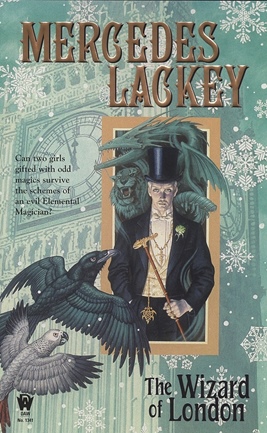Description
Mercedes Lackey's magical Elemental Masters series recasts familiar fairy tales in a richly-imagined alternate Victorian world
The letter that introduced twelve-year-old Sarah Jane Lyon-White to Isabelle Harton, who ran the Harton School in central London, seemed quite simple and straightforward. But it was what was not written in the letter that resonated to Isabelle’s own finely tuned “extra” senses: “Sarah has gifts we cannot train,” the letter whispered to her, “nor can anyone we know. Those we trust tell us that you can….”
And it was true, for the Harton School was far from ordinary. It was Isabelle’s job to train children who possessed the odd types of magic that could not be trained by London’s powerful Elemental Masters: clairvoyants, telepaths, those with the ability to sense hidden danger, the vision to see into the past, and even that rarest of all talents: the ability to see and communicate with the dead.
But Isabelle was uneasy, for though she knew that Sarah Jane had a touch of telepathy, there seemed to be something else about the girl—something that had not yet manifested.
And Isabelle was right to be worried, for as soon as Sarah’s full talents became evident, there was an attempt made on her life. For Sarah was that rarest of magicians: a true medium, and for some reason, a powerful Elemental Master wanted her dead.
Isabelle knew that to protect her ward she would have to seek help from the Elemental Masters of the city. That meant she would also see Lord David Alderscroft, the man she had once loved, but who had inexplicably chilled toward her and broken her heart long ago—for he was the leader of the city’s Elemental Masters, the man who was now called the Wizard of London.
About the Author
Mercedes entered this world on June 24, 1950, in Chicago, had a normal childhood and graduated from Purdue University in 1972. During the late 70's she worked as an artist's model and then went into the computer programming field, ending up with American Airlines in Tulsa, Oklahoma. In addition to her fantasy writing, she has written lyrics for and recorded nearly fifty songs for Firebird Arts & Music, a small recording company specializing in science fiction folk music."I'm a storyteller; that's what I see as 'my job'. My stories come out of my characters; how those characters would react to the given situation. Maybe that's why I get letters from readers as young as thirteen and as old as sixty-odd. One of the reasons I write song lyrics is because I see songs as a kind of 'story pill' -- they reduce a story to the barest essentials or encapsulate a particular crucial moment in time. I frequently will write a lyric when I am attempting to get to the heart of a crucial scene; I find that when I have done so, the scene has become absolutely clear in my mind, and I can write exactly what I wanted to say. Another reason is because of the kind of novels I am writing: that is, fantasy, set in an other-world semi-medieval atmosphere. Music is very important to medieval peoples; bards are the chief newsbringers. When I write the 'folk music' of these peoples, I am enriching my whole world, whether I actually use the song in the text or not."I began writing out of boredom; I continue out of addiction. I can't 'not' write, and as a result I have no social life! I began writing fantasy because I love it, but I try to construct my fantasy worlds with all the care of a 'high-tech' science fiction writer. I apply the principle of TANSTAAFL ['There ain't no such thing as free lunch', credited to Robert Heinlein) to magic, for instance; in my worlds, magic is paid for, and the cost to the magician is frequently a high one. I try to keep my world as solid and real as possible; people deal with stubborn pumps, bugs in the porridge, and love-lives that refuse to become untangled, right along with invading armies and evil magicians. And I try to make all of my characters, even the 'evil magicians,' something more than flat stereotypes. Even evil magicians get up in the night and look for cookies, sometimes."I suppose that in everything I write I try to expound the creed I gave my character Diana Tregarde inBurning Water:"There's no such thing as 'one, true way'; the only answers worth having are the ones you find for yourself; leave the world better than you found it. Love, freedom, and the chance to do some good -- they're the things worth living and dying for, and if you aren't willing to die for the things worth living for, you might as well turn in your membership in the human race."Also writes asMisty LackeyAuthor's website
